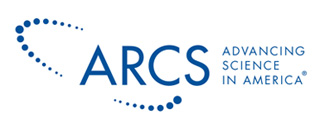Thirteen UC Santa Cruz graduate students have received scholarships worth a total of $141,000 from the Achievement Rewards for College Scientists (ARCS) Foundation for the 2018-19 academic year. Since 1976, the ARCS Foundation's Northern California Chapter has given more than $2 million in scholarships to UCSC students.
This year's ARCS scholars will be recognized at the ARCS Scholar Awards Celebration in San Francisco on November 7.
The ARCS Foundation, founded in 1958, is a national organization that provides scholarships and fellowships for the country's most promising science, medical, and engineering students. This year's ARCS scholars at UC Santa Cruz represent the Science Communication Program and the Departments of Astronomy and Astrophysics; Biomolecular Engineering; Computer Engineering; Computer Science; Ecology and Evolutionary Biology; Microbiology and Environmental Toxicology; Ocean Sciences; and Physics. The scholars and their interests are as follows:
Bailey Bedford is a graduate student in science communication with a background in condensed matter physics. He is eager to eliminate perceptions that science is incomprehensible to the average person.
Kimberly Bitterwolf is a graduate student in ocean sciences studying isotope geochemistry to understand the chemical composition of inputs to the ocean from rivers and groundwater. She also serves as a mentor to four UCSC undergraduates and cofounded a graduate student organization to improve education, outreach, and diversity in marine sciences.
Charles Cole is a graduate student in biomolecular engineering studying the genetics of antibody generation. He has already published two papers as first author, in the Journal of Immunology and Nucleic Acid Research.
Emily Cunningham is a graduate student in astronomy and astrophysics whose research focuses on the formation and evolution of our Milky Way galaxy. She studies the motions of the galaxy's oldest, most distant stars, called halo stars, using the Keck Telescopes in Hawaii and the Hubble Space Telescope.
Jared Duval, a graduate student in computer science, is interested in serious games for health. He is leading a large interdisciplinary project to develop a speech therapy game for children born with cleft lip and cleft palate.
Ying Kat Feng is a fourth-year Ph.D. student in astronomy and astrophysics working on the characterization of exoplanet atmospheres. She also develops frameworks for studying the habitability of Earth-like planets in the context of future space-based direct imaging missions.
Erin Garcia has a Ph.D. in microbiology and is currently a graduate student in the Science Communication Program. She is particularly interested in infectious diseases and the transmission of viruses between animals and humans.
Kaitlin Hellier is a graduate student in physics whose research focuses on sustainability and renewable energy materials. She also teaches and mentors undergraduates and is an advocate for diversity in the sciences.
Kevin Johnson is a graduate student in microbiology and environmental toxicology with an interest in bacterial pathogenesis. His research focuses on the human pathogen Helicobacter pylori, which causes inflammation in the stomach that can lead to ulcers or stomach cancer.
Chris Law is a graduate student in ecology and evolutionary biology studying biological diversity. His research focuses on the ecological and morphological mechanisms that contribute to the diversification and fitness of both species and individuals.
Ben Lehmann is a graduate student in physics studying dark matter from the perspectives of particle physics, astrophysics, and cosmology. His research involves finding new ways to use astronomical data to learn about the mysterious dark matter component of the universe.
Dawn Hustig-Schultz is a graduate student in computer engineering who has received an Outstanding Teaching Assistant Award and participated in research assistantships at NASA Ames Research Center and Lawrence Berkeley National Laboratory. Her research on control systems has potential applications in platooning of autonomous cars to improve highway transportation.
Carla Sette is a graduate student in ecology and evolutionary biology who uses mathematical modeling to describe complex ecological systems. She is studying the evolution of competitive strategies in mating systems and the modeling of climate impacts on biological systems.



